Google and Alphabet's 20 most ambitious moonshot projects
Google Fiber

Nest

Nest shows Alphabet's plan to get involved in smart home technology.
Most people know Nest from its smart thermostat, which will learn owners' behaviors and adjust the temperature according to their preference and to safe money. You can also control the thermostat remotely via its app.
But Nest makes other smart home products as well, like a smart fire detector and a smart home security camera.
Nest, which was acquired for $3.2 billion in 2014, is its own company under Alphabet.
Driverless cars
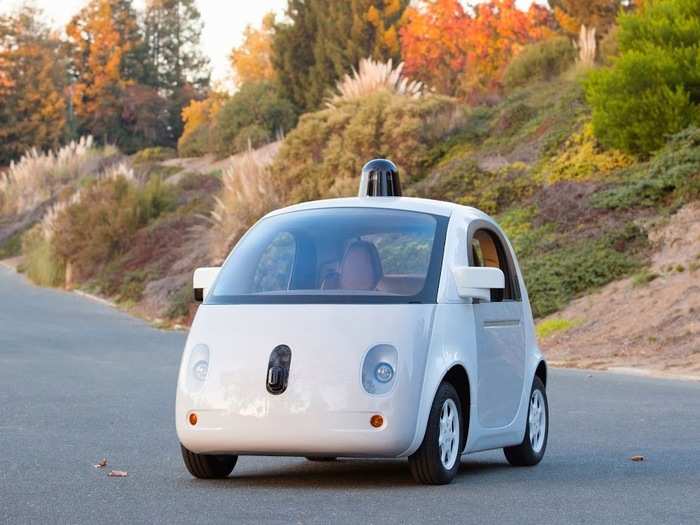
Google is one of the forerunners in the driverless car race.
As of the end of November 2015, Google's driverless cars had racked up more than 1.3 million miles in autonomous mode, according to a Google report filed with the Department of Motor Vehicles.
A December report released by Juniper Research, a mobile and digital market research firm, declared Google was most likely to bring driverless cars to consumers first. This makes sense, considering Google’s self-driving car software has gained more than 90 years worth of collective driving experience.
Google's driverless car project is run by the Google X company under Alphabet.
Delivery drones
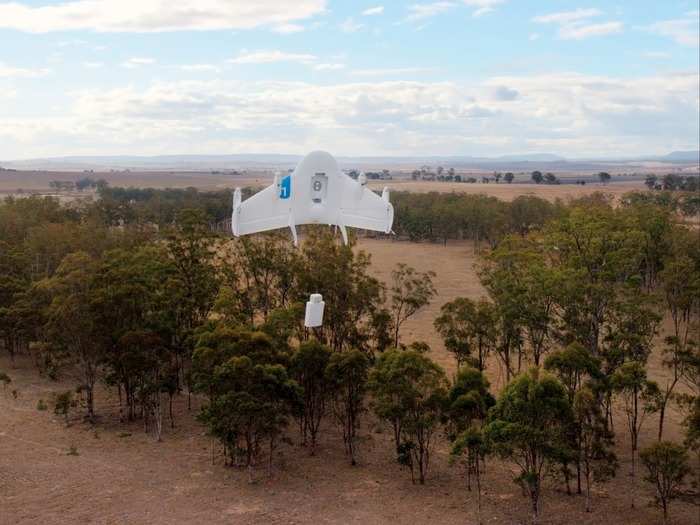
Project Wing is Alphabet's desire to replace your mailman with flying drones.
A patent filed October 2014 gave us better insight as to how the project would work. The drone will lower a package using a winch to tiny robots on the ground. Those robots will then wheel the package to a safe holding location.
Alphabet plans on releasing the drone delivery service to the public in 2017. Project Wing is run by the Google X company under Alphabet.
Smart contact lenses
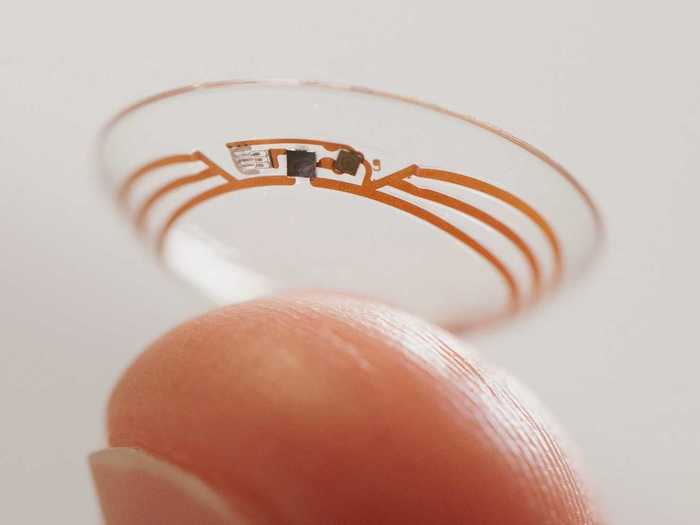
Alphabet is pursuing smart contact lenses that are solar powered and collect biological data about the wearer. Sensors embedded in the contacts could collect information like body temperature and blood-alcohol content.
The tech giant also announced in 2014 that it was pursuing contact lenses that would use tiny glucose sensors to measure sugar levels in your tears.
The project is run by Alphabet's Verily company, which was originally named Google Life Sciences.
Devices that counteract Parkinson's Disease
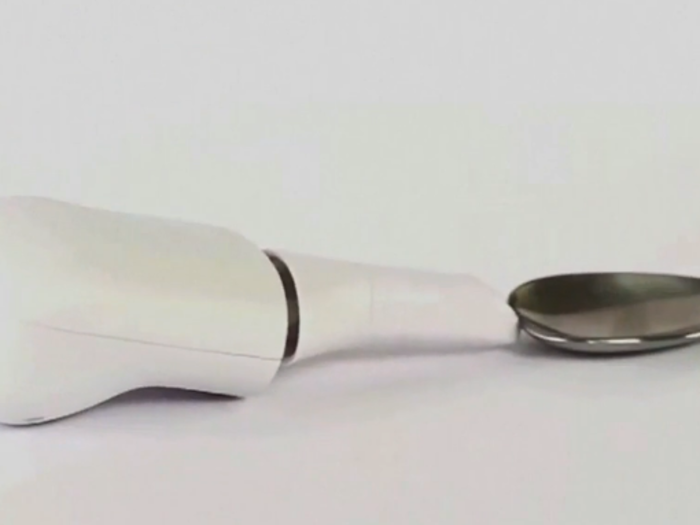
The spoon allows people suffering from tremors due to Parkinson's Disease to eat without spilling their food. It reduces shaking by 76% on average.
The spoon was designed by Lift Labs, which Google bought in September 2014, and is now run under Google X.
Renewable energy from wind turbines

Before it was Alphabet, Google bought Makani Power in 2013, which makes an airborne device called an "energy kite" to create renewable energy.
An energy kite is a plane-like device equipped with rotors. The rotors help lift the kite off the ground, and once its in flight the wind forces the rotors to act like individual turbines. You can read more about how it works here, but Makani claims the system generates 50% more energy than traditional turbines and uses 90% less materials.
The project is now under the control of Google X.
Internet-beaming hot air balloons
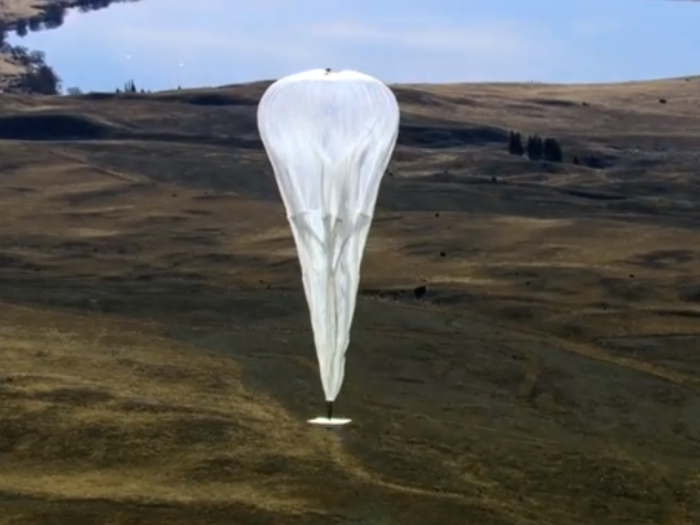
Project Loon is Alphabet's desire to bring internet to two-thirds of the world's population using internet-beaming hot air balloons.
The project has been in the works since 2011, about two years before it was unveiled to the public. The solar powered balloons fly at high altitudes to provide broadband to areas without internet access. You can read the specifics about how the project works here.
Project Loon is run under Google X.
A pill that can detect cancer cells

The tech giant is designing tiny magnetic particles that can look for signs of cancer and other diseases in the human body, according to the Wall Street Journal.
The company is also working on a wearable that would serve as a monitoring tool by using a magnet to count the particles. The project is at least another four years away from being ready for prime-time.
The project is being run by the Google X research lab.
A wearable that tracks your health for clinical trials
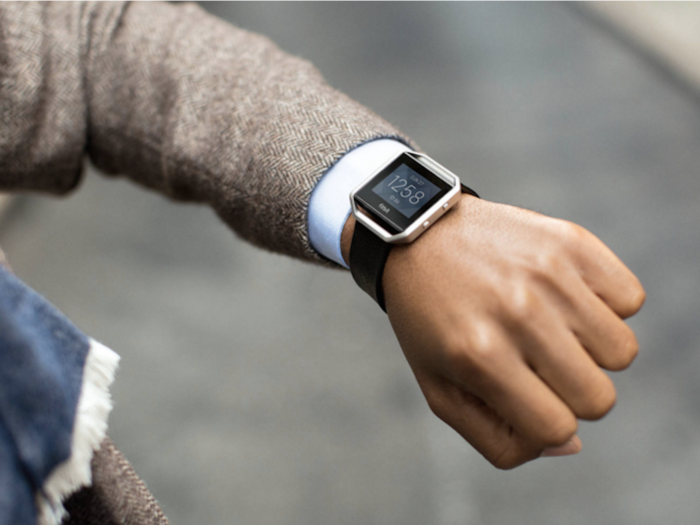
The wristband can measure health rhythm, pulse, and skin temperature. It can also track outside factors like noise and light.
The device wouldn't be sold as a consumer product, but used as a medical device that is prescribed to patients or used for clinical trials. The wristband is being developed under Google X.
Dr. Thomas Insel, who served as the director of the National Institute of Mental Health for 13 years, was brought in to lead a mental health division as part of Verily (formerly Google Life Sciences) under Alphabet.
One of his ideas is to create a wearable that uses sensors to objectively track your mood. Although this may still be in the idea phase, it's possible we could see this rolled into the wearable Alphabet is developing.
Internet-beaming drones
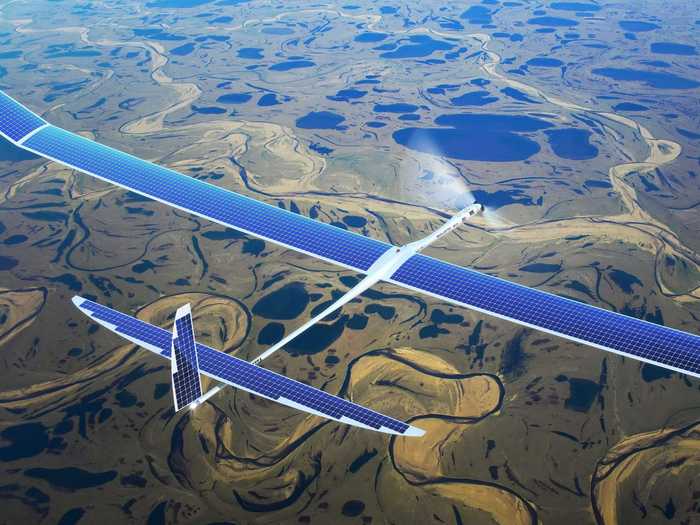
Alphabet has two approaches to beaming the internet around the world: hot air balloons and drones.
The tech giant bought Titan Aerospace, which makes the solar-powered drones that are built to fly nonstop for years. The Titan Aerospace Solara 50 has a wingspan of 150 feet and is equipped with 3,000 solar cells, which can provide 7 kW of electricity to stay airborne for five years. They can also take aerial photography.
The drone project is run as part of Project Titan under Google X.
Robots!

Google-turned Alphabet acquired a ton of robotic companies in 2013. One that stands out is Boston Dynamics.
Boston Dynamics creates a number of robots inspired by animals to aid in military use. The one pictured above is called the Cheetah Robot, and it's the fastest legged robot in the world. The Cheetah Robot can get to a speed of 29 miles per hour, crushing a 13.1 mile-per-hour speed record set by MIT in 1989.
You can see a list of Alphabet's robotics projects here.
All robot projects are run as part of Replicant, which is controlled by Google X.
Free WiFi in New York City
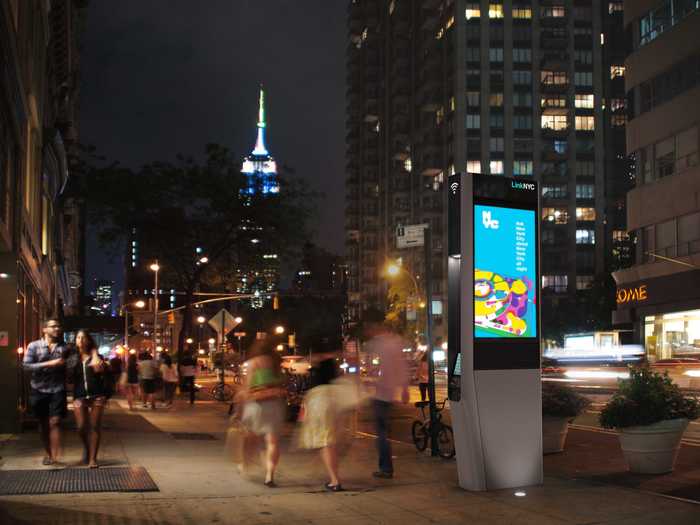
New Yorkers, have you seen some of those hubs popping up around the city? If so, you can thank Alphabet.
Google announced its plan to fund free WiFi in New York City in June 2015, and we are already starting to see the results. Called LinkNYC, the project is converting old New York City payphones into WiFi hotspots with USB charging ports.
LinkNYC is run as part of Sidewalk Labs under Alphabet.
A closer look at the human body
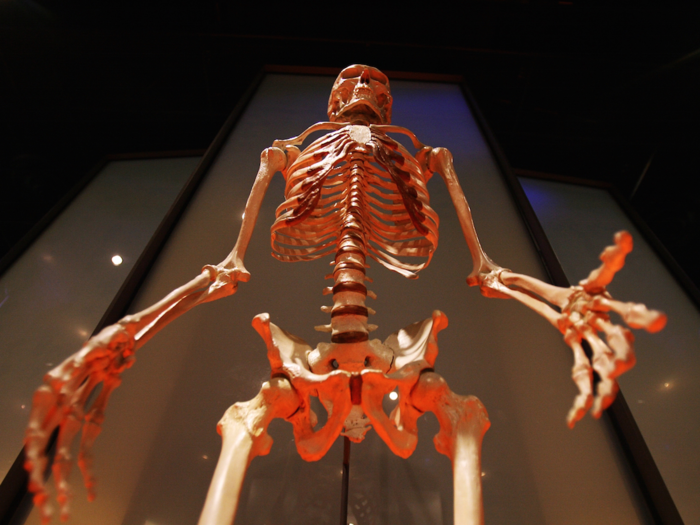
As part of a project called the Baseline Study, Alphabet is collecting anonymous genetic and molecular information from 175 people, according to the Wall Street Journal.
The hope is that the data will assist researchers in detecting heart disease and cancer much earlier, and push medicine in the direction of prevention as opposed to treatment.
The massive science project is being run as part of Google X under Alphabet.
Longer lasting batteries

Creating longer lasting batteries may not seem like an ambitious project, but it's actually a pretty difficult one.
There's a lot of demand for batteries that last longer when it comes to creating popular consumer items like smartphones. As Alphabet CEO Larry Page told analysts in 2013, battery life for mobile devices is a “huge issue” with “real potential to invent new and better experiences," the Wall Street Journal reported.
A small group of just four members is currently working on that issue under Google X, the WSJ reported.
A giant genomics storing service
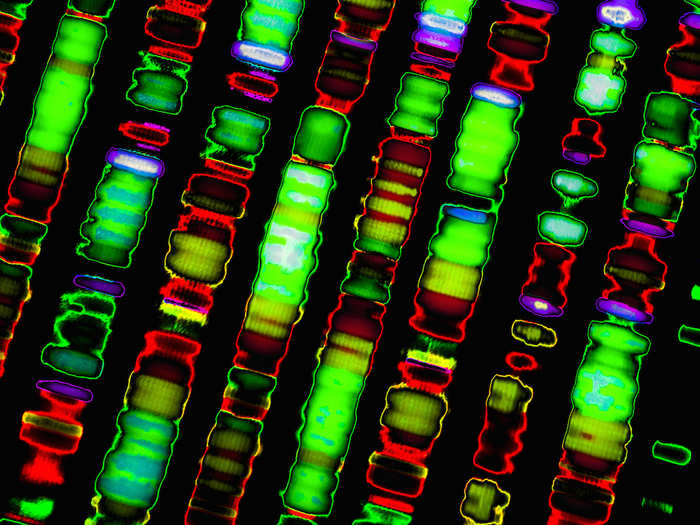
Google will store your genome in the cloud for $25, and the storage system could have a major impact on the scientific community.
The hope is to collect millions of genomes to aid in scientific research. As MIT Review reports, the system could aid in collecting "cancer genome clouds" that would allow scientists to share information and run virtual experiments.
The project is run under Google X.
Curing death
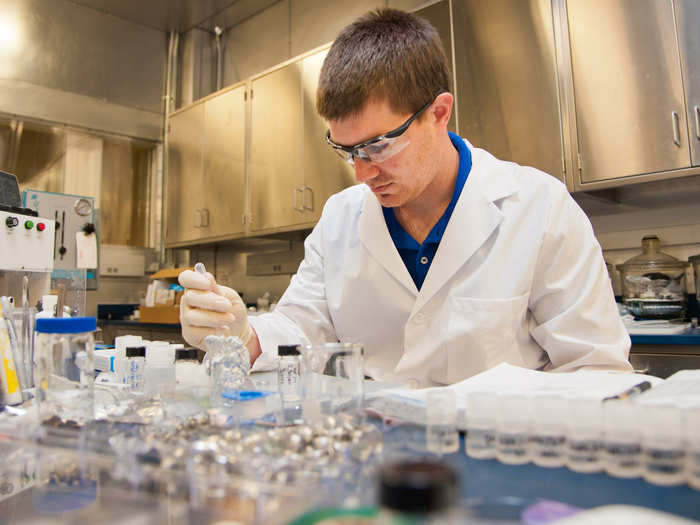
The tech giant has taken on the ambitious project of extending the average lifespan.
The research being done has been kept fairly hush, but we know researchers are looking at things like genes that correlate to longer lifespans in certain people. The project is run by Calico, a company under Alphabet, that stands for California Life Company.
Artificial Intelligence

DeepMind, which is the company's AI research firm, falls under Google as a traditional product.
Google has made massive strides with refining its AI. In January, Google's AI beat a human at the complex game of Go for the very first time.
Google's AI was also capable of learning to play and win Atari 2600 games without any prior instructions in 2015. More recently, the company's AI system was able to successfully navigate a maze on a computer game the same way a human would.
Virtual reality

It seems like virtual reality will be the next big project for the tech giant.
The company opened up a new virtual reality division under Google in early January, Re/code reported. There are also reports that the company is working on updating its cheaper virtual reality set, Google Cardboard, to make it more powerful.
The ability to control objects in the virtual world.

In what seems straight out of science fiction, Project Soli is the tech giant's mission to allow people to control objects in the virtual world.
The project uses radar waves to detect precise finger movements or finger "micromotions." This would allow people to control virtual objects or navigate through their phone without touching the actual screen.
The project is run under ATAP, which stands for Advanced Technology and Projects. ATAP is considered a Google company.
Popular Right Now
Popular Keywords
- India’s wearables market decline
- Vivo V40 Pro vs OnePlus 12R
- Nothing Phone (2a) Plus vs OnePlus Nord 4
- Upcoming smartphones launching in August
- Nothing Phone (2a) review
- Current Location in Google
- Hide Whatsapp Messages
- Phone is hacked or not
- Whatsapp Deleted Messages
- Download photos from Whatsapp
- Instagram Messages
- How to lock facebook profile
- Android 14
- Unfollowed on Instagram
Advertisement